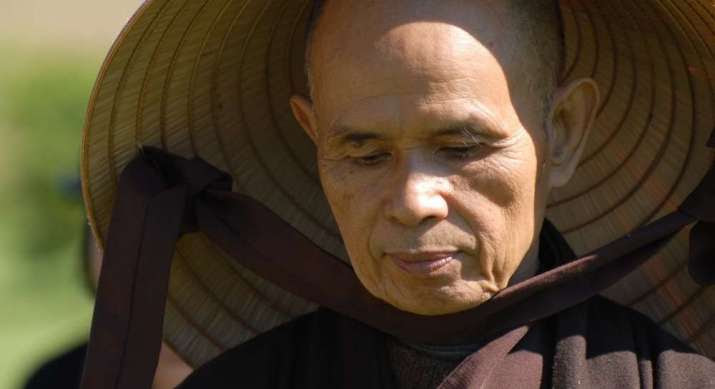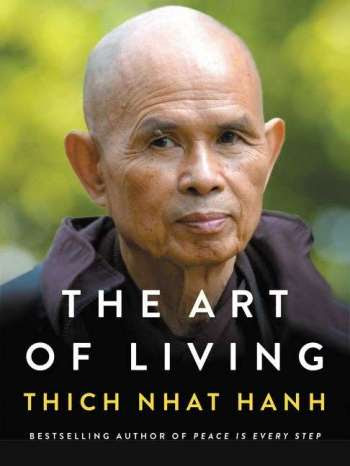By Shyamal Sinha

Thich Nhat Hanh is a Vietnamese Buddhist Zen Master, poet, scholar and peace activist. During the Vietnam War his work for peace and reconciliation moved Martin Luther King to nominate him for the Nobel Peace Prize in 1967. He founded the Van Hanh Buddhist University in Saigon and the School of Youth for Social Service. He was exiled as a result of his work for peace but continued his activism, rescuing boat people and helping to resettle Vietnamese refugees. He has written more than 100 books, which have sold millions of copies around the world. He now lives in France where he founded a Buddhist community and meditation centre.
Zen master Thich Nhat Hanh’s 2017 book The Art of Living has been awarded a gold Nautilus Book Award in the Religion / Spirituality of Eastern Thought category.
Established in the US in 1998, and named after the nautilus shell, a symbol of wisdom and growth, the Nautilus Book Awards are given out annually to the authors of books that encompass social and environmental justice. Previous recipients include His Holiness the Dalai Lama, American novelist, essayist and poet Barbara Kingsolver, American journalist Amy Goodman, Britain’s Charles, Prince of Wales and South African cleric Desmond Tutu.
The Naitulus Book Awards seek to recognize “books that promote spiritual growth, conscious living, high-level wellness, and positive social change as they stimulate the imagination and inspire the reader to new possibilities for a better world.”
In The Art of Living: Peace and Freedom in the Here and Now, Thich Nhat Hanh, known affectionally to his followers as Thay (Vietnamese for teacher), explores seven mindfulness trainings encompassing the Buddhist view on life, relationships, and interconnection, that were taken from his last full talks before his recent illness. The teachings are aimed at helping the practitioner understand the three doors of liberation—emptiness, signlessness, aimlessness—as well as impermanence, non-craving, letting go, and nirvana, with the aim of coming to terms with aging and dying to live a joyful, peaceful, active life, free of fear.
Born Nguyen Xuan Bao on 11 October 1926, Thay is an influential Zen teacher, poet, and the author of more than 100 books. As an active (Nautilus advocate for peace, he was influential in the anti-Book Awards) war movement, encouraging non-violent protests during the Vietnam War. Thay founded the Order of Interbeing and the Unified Buddhist Church, and in 1982 established the Plum Village Buddhist Center in France with his colleague Sister Chan Khong. He has been a central figure in the transmission of Buddhism to the West and in marrying an authentic Zen tradition and lineage with a progressive approach to issues such as social activism, science versus faith, and religion versus spirituality.












